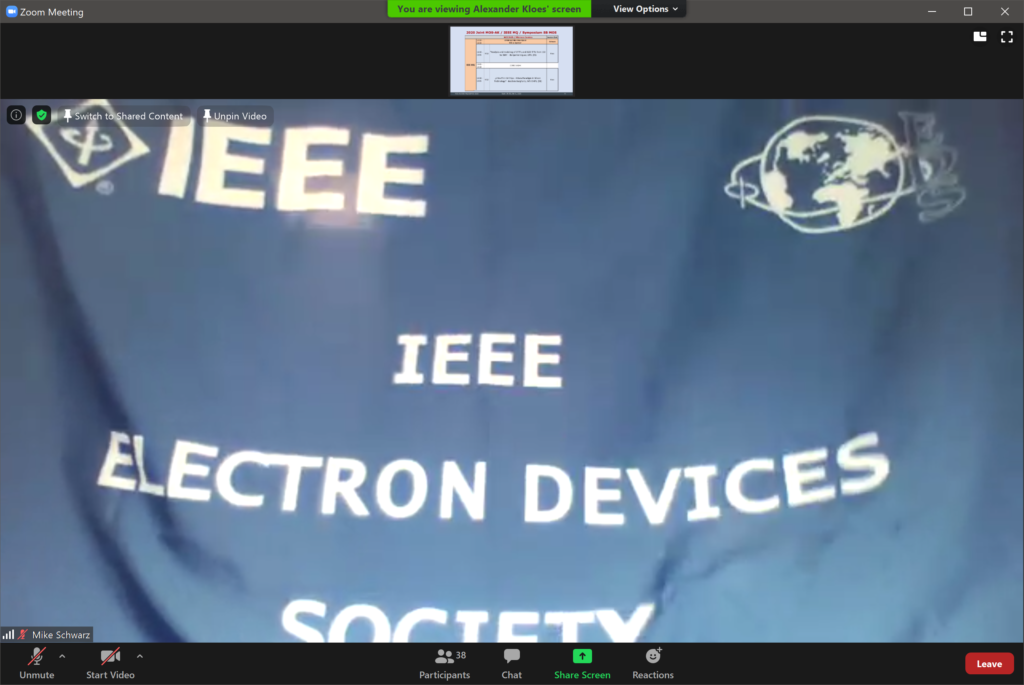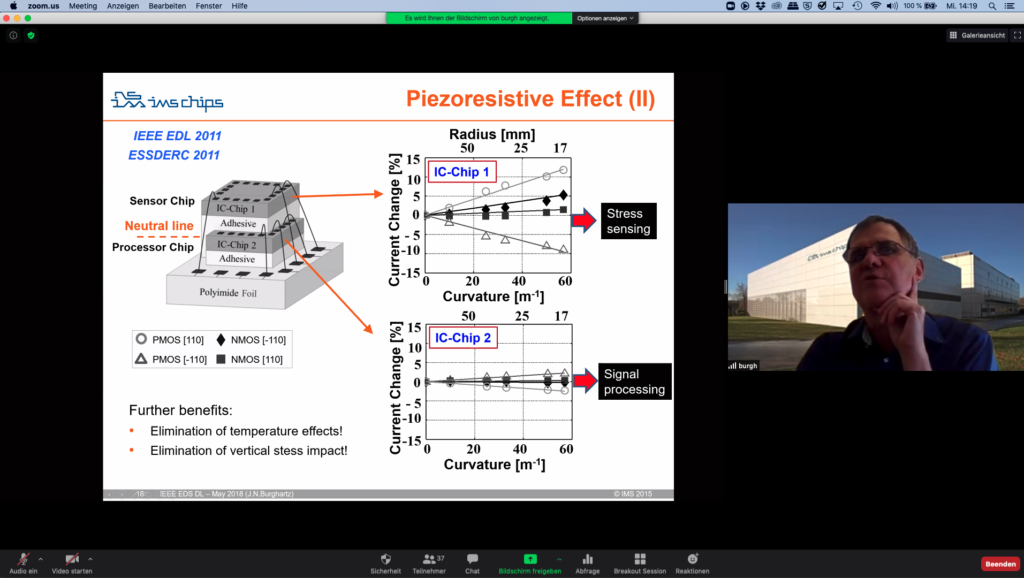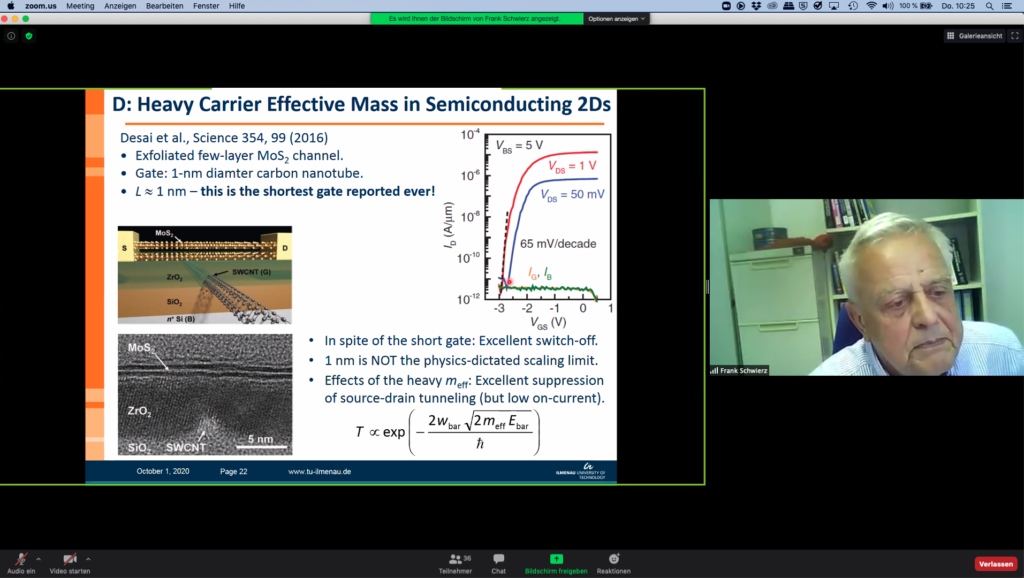Germany Chapter presents IEEE EDS Mini-Colloquium on „Non-conventional Devices and Technologies“
The 2020 IEEE ED Germany Chapter MQ was held from September 30th to October 1st, 2020. The EDS Mini-Colloquium on „Non-conventional Devices and Technologies“ was integrated into a joint event with the Spring MOS-AK Workshop and the Symposium on Schottky Barrier MOS (SB-MOS) devices.
The event wasshifted from the spring to the early autumn due to the COVID-19 pandemic. The local organizers decided to transform it into a virtual event. It was sponsored by THM, the EDS Germany Chapter, the IEEE Young Professionals Germany Affinity Group, and the AdMOS company. The MQ was attended by 71 participants, with 23 IEEE participants and 48 guests.
Prof. Mike Schwarz opened the IEEE MQ on “Non-conventional Devices and Technologies” as German Chapter chair.

The first lecture was given by Prof. Benjamin Iniguez from Universitaet Rovira i Virgili on the topic “Analysis and modeling of OTFTs and IGZO TFTs from 150 to 350K”. Prof. Iniguez reviewed recent results regarding the modeling of OTFTs and IGZO TFTs and their benchmarking with measurements. Aspects of the metal-insulator-semiconductor structure, facile manufacturing, compatibility with flexible substrates, and the favorable comparison of mobility compared to OTFTs where discussed.
Prof. Joachim Burghartz from IMS Chips gave a lecture on “Ultra-Thin Si Chips – A New Paradigm in Silicon Technology”. He intensively discussed the advantages and challenges of ultra-thin silicon chips. Special focus was given to the piezoresistive effect and its benefits for eliminating temperature effects and vertical stress impact.

Dr. Wladek Grabinski from MOS-AK was presented “FOSS TCAD/EDA Tools for Advanced Compact Modeling”. He gave an overview of existing open source tools for process- and device simulation, SPICE tools, and mechanical FEM tools.
Next Dr. Frank Schwierz from TU Ilmenau gave a very detailed lecture on “2D Electronics – Opportunities and Challenges”. After an introduction in 2D materials, e.g. bandgaps of different 2D semiconducting materials, a comparison of their effective masses and the effects of direct source to drain tunneling and its suppression were discussed.

The final lecture was given by Prof. Tibor Grasser from TU Vienna on “Stability and Reliability of 2D Transistors”. Prof. Grasser addressed material properties, discussed the typical defects, oxygen vacancies, and their impact on the charging behavior. Finally, effects such as the impact of charge defects were discussed.
A huge thank you to all participants and lecturers!
